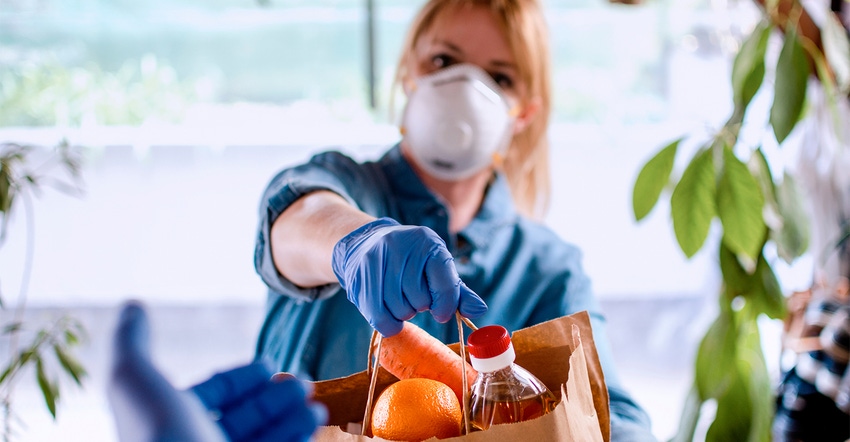Study shows public susceptible to COVID-19 food safety misinformation
A recent study conducted by University College London shows when it comes to COVID-19 and food safety, misinformation abounds.

As the world continues to grapple with the COVID-19 pandemic, including recent rises in cases in several U.S. cities, the public is relying on many sources for the latest news and safety information, from the media to local and national elected officials to doctors and health officials. However, according to a recent study conducted by researchers from University College London (UCL), many people are struggling to sort the good information from the bad.
The study, which was launched shortly after shutdowns began, asked 25 questions of 3,781 respondents, with possible responses of “correct,” “not correct” or “not sure.” Of the respondents, two-thirds were from the UK, U.S., India and Ireland; the results were troubling, and highlight how dangerous the spreading of misinformation can be.
Nearly half (43%) of respondents, for example, believe washing fruits and vegetables with soap or diluted bleach is safe. Many other false statements were believed as true by a worrying number of respondents as well.
When presented with the statement, “Drinking water flushes all COVID-19 viral particles into the esophagus and then the stomach, where they will be completely disintegrated by gastric acid,” 21% wrongly believed it to be true, and an additional 22% were unsure. Other misinformation believed to some degree by respondents included:
“You can protect yourself from the novel coronavirus by gargling bleach,” believed by 3.3%, with another 7.5% unsure;
“Keep your mouth and throat always moist, as saliva can encapsulate and deactivate the COVID-19 virus;” believed by 25% with an additional 29% unsure.
The researchers did note an encouraging 96% of respondents believe avoiding direct contact with others and washing hands thoroughly after shopping are ways to reduce the risk of transmission and infection.
“Most people understand the importance of social distancing in preventing the spread of COVID-19,” said Michael Reiss, professor at the UCL Institute of Education, in a press release. “However, there are important misunderstandings about the implications of food and eating practices. Governments can help allay fears and reduce COVID-19 transmission by promoting clear public health messages about food and eating.”
While it can be viewed as a positive that consumers are looking to take extra steps to ensure the food they eat is safe, it is also imperative that the government and health officials pass along scientifically-backed information and quell the spread of misinformation, especially when it comes to potentially dangerous chemicals like bleach. At a time when, according to the 2020 International Food Information Council (IFIC) Food and Health Survey, more than half of all Americans are concerned about the safety of the food they purchase and consume with regards to COVID-19, precautions themselves must be safe as well.
About the Author(s)
You May Also Like






